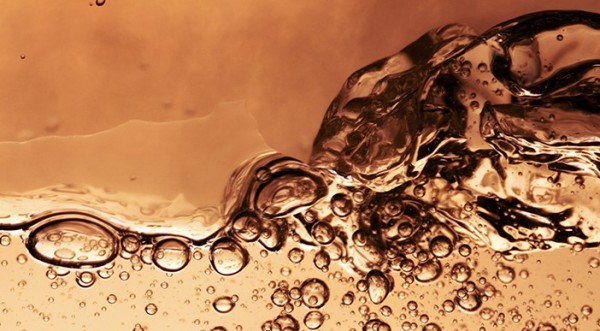Since the stricter sulphur limit of 0.10% m/m was implemented in the Emission Control Areas (ECAs) from 1 January 2015, options available to ship owners and operators have been the use of marine gas oil or distillates, heavy fuel oil in combination with scrubbers (exhaust cleaning systems), LNG (liquefied nitrogen gas) or alternative fuels such as biofuels.
As a result of the ECA limit change and the sharp fall in oil price in the past year, many ship owners operators have decided on the use of distillates as the most viable way of complying with the ECA regulatory requirement. Still, oil companies have developed new grades of marine fuel for use in ECAs. These very low sulphur products, also called “new ECA fuel” or “hybrid fuels”.
The term “hybrid fuel” refers to a product with specifications falling between a distillate product and a residual product. This largely consists of products that are essentially marine diesel fuels, blended diesel fuels and low viscosity residual fuels, which for the most part, have been seen in the marine market over the last 40 years. The downside of these new ECA fuels is that they do not comfortably fit into the current ISO 8217 marine fuel specifications forcing the fuel buyer to compromise in the selection of the most suitable specification for ordering and comparison.
The 0.1%m/m ECA Sulphur limit was an opportunity for suppliers who have direct contact with refineries to launch a number of new fuels. In many cases these fuels were just heavier grades of gas oil that have been around for a long time.
A couple of suppliers launched grades that appeared quite different. The principle purpose of these new grades was to provide a fuel that met the ECA sulphur limit but had a relatively high viscosity, overcoming the potential risks associated with very low viscosity gas oils. A significant characteristic of some of these new ECA fuels (NEFs) is that the cold flow properties could present a challenge on some ships.
There are more than 20 products in the market with several major suppliers offering this type of fuel such as LUKOIL, Exxon Mobil, Gazprom, BP, Shell, Phillips 66, CEPSA Marine and Neste Oil.
The way that these new products are actually produced can give us a basic understanding of their overall properties. For example, fuels blended using the heavy fractions from the hydrocracker have a number of known basic characteristics which can be beneficial and challenging. Some beneficial characteristics are:
- Very aliphatic (paraffinic) with virtually no aromatics resulting in very good to excellent ignition and combustion properties
- High viscosity relative to normal distillates which reduces the chance of fuel pump leakage and damage issues
High flash point
At the same time, there are also challenging characteristics such as
The very aliphatic nature of the material could present potentially serious handling issues when in contact with fuels containing cracked residues. Vessels that trade in and out of ECAs would have to manage the changeover process very carefully
Very waxy resulting in challenging cold flow properties. Some of these grades have already been treated with cold flow improvers meaning that further improvements are unlikely to be possible with on-board treatment. Such fuels would have to be heated to above their pour points ALL the time.
Some of the products are low viscosity residual blends. These are like any other residual fuel and can be blended using cracked distillates. As catalytic cracker cycle oils are potential blend components, there is a risk of cat fines (Al+Si). Hence, on-board treatment must be maintained at its highest efficiency.
Reaction from ship owners/operators
Whilst some ship operators have accepted the challenges of these new fuels, many others have decided to wait and see how the “pioneers” or early adopters fare while they themselves temporarily use what they consider a safer option – the more well-known and understood marine gas oil (MGO). This is a result of three factors – the favourable bunker prices, the assumption that suppliers need to undergo a learning curve before their new products are optimised and the anticipation of operational feedback from the early adopters.
Conclusions
It is clear that the new fuels being offered to meet the current ECA sulphur limits present significant benefits to users provided the challenges are understood and can be addressed. Ship operators must be very vigilant about the use of these fuels by testing deliveries routinely and monitoring supplier performance. Attention should be given to their quality and availability trends. Compatibility test with other products onboard vessel must be also included. Mixing NEFs with other type of fuels should be avoided, even with MGO.
Crew members must be fully trained in the use of these fuels and report onboard fuel performance. All parties must improve their capabilities in fuel management in order to get optimal value from every aspect of fuel-related operations and certainly training has a major role to play. A problematic fuel definitely needs the best fuel management partner to provide tailor made fuel handling advice for optimal performance based on the specific vessel’s engines and fuel treatment plan
Source: Veritas Petroleum Services




































































